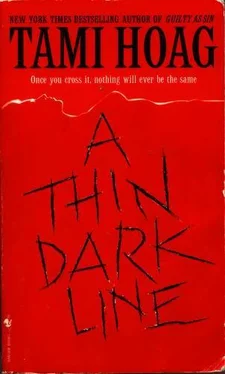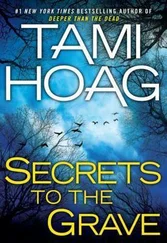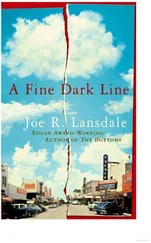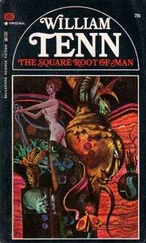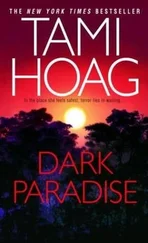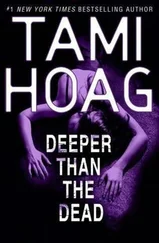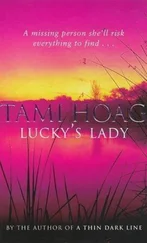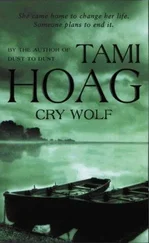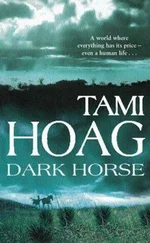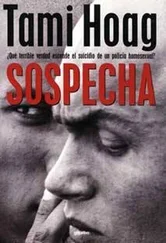If he scared her how? Was custody the only threat he'd made? Annie drew a breath to ask what he meant, but held it as he turned toward her.
"You look like her, you know," he said, his voice strangely dreamy. "The shape of your face… the hair… the mouth…"
He reached out as if to touch her cheek, but pulled back at the last instant. She wondered if it was sanity or the fear of breaking some inner spell that stopped him. Either way, it unnerved her. She didn't welcome comparison with a woman who had met such a brutal end.
"I miss her," Donnie admitted. "Always want what I can't have. I used to think that was ambition, but it's just… need."
"What about Pam? What did she need?"
The train whistle blew again, louder, nearer.
"To be free of me," he said simply, his expression bleak. "And now she is."
Annie watched him walk away, not back to the building but to a pearl white Lexus parked near the side gate. Behind her the Southern Pacific train whined past, wheels chattering over the connections in the track.
She had been working the case a matter of hours, and she felt as if she had stepped into a maze that appeared deceptively simple from the outside but was in reality a complex labyrinth, dark corridor full of mirrors. A small part of her wanted to turn back. A larger part of her wanted to go deeper, learn more. The mystery pulled at her, beckoned her. Temptation, The word came to her like a whispered secret from a hidden coconspirator.
Fourcade. He was the guardian at the gate, her selfappointed guide if she would accept his offer. He held the map of the maze and the knowledge of the players. The trick would be deciding if he was friend or foe, if his offer was genuine or a trap. There seemed only one way to find out.
Even on a bright day the house had a sinister look. The brilliant spring sun failed to remove the shawl of shadows that fell down from the newly leafed trees. Shrouded in murky light and gray with neglect, it squatted amid the sprouting growth like a toothless crone, ugly and abandoned.
Nick stared at the house from the pirogue, fascinated by the possibility that evil could linger in a place like a scent. The house hadn't been bad off at the time of the murder. Recently vacated by renters at the time, and scheduled for some renovation work, the electricity had still been turned on. Since the murder, the place had been let go. Kids had thrown rocks through the windows. The stigma of death clung to it like grime.
Nick would not go inside. Some people would have called him superstitious, but they would have been people who had never stepped close to the boundary between good and evil; they didn't know the power or the possibilities. Still, it was telling that on a day as fine as this one, when other parts of Pony Bayou were thick with weekend fishermen, there were none within a quarter mile of this place.
He had set out in the pirogue intending to distance himself from thoughts of the case. But this place had drawn him like a magnet.
Another battle lost, and so he would give himself over to the obsession until a conclusion could be reached.
Would it be over now, he wondered, had I killed Renard that night?
Pony Bayou here was narrow, even this time of year, when the brown water was high and spilling into the forest. The banks were crowded with hackberry saplings and tangles of dewberry and poison ivy. The limbs of the black willow and water locust reached out over the column of water from both sides, like bony fingers stretching to touch one another.
The trees were alive with the sounds of birds excited by the early arrival of spring. The songs and shrieks and squawks blended into a cacophony that seemed to take on an especially discordant and unnerving quality. And on every available limb, log, and stump, water snakes had crawled out to sun themselves in an eerie ritual of spring. The forest along the banks seemed hung with reptiles, like dark, muscular ropes of live bunting.
Taking up the push-pole, Nick rose at the back of the pirogue and sent it gliding north and west. The route was twisted, his passing witnessed by no one. Nature claimed the land here for several miles and no man in recent history had challenged Her. Then the channel widened slightly and the forest came to an abrupt halt on the western bank, marking the edge of the first piece of domesticated property away from the murder scene. Marcus Renard's home.
The house stood a hundred yards or so away, elegant in its simplicity. Clean lines, plain columns. The modest home of a modest indigo planter in a past century. Tall French windows opened onto a brick veranda where Victor Renard sat at a patio table.
Victor was slightly bigger than Marcus, thicker bodied. While he had the social awareness of a small child, he had the physical strength of a thirty-seven-year-old man and had once been turned out of a group home for destroying a bed in a fit of temper. Emotions-his own or those of others- were difficult for him to comprehend or process. The autistic mind seemed unable to decode feelings. For the most part, he expressed none, though odd things would sometimes trigger agitation and occasionally anger. At the same time, Victor was mathematically gifted, able to easily work equations that could stump college students, and he could name the genus and species of thousands of animals and plants and describe each in textbook detail.
People around Bayou Breaux didn't understand Victor Renard's condition. They were frightened of him. They mistook him for being retarded or schizophrenic. He was neither.
Nick had considered it his duty to discover these things about Victor and his autism. An arsenal of information was far more useful to a detective than any other kind of weapon. The smallest, seemingly insignificant fact or detail could prove to be the one piece that made the rest of the puzzle work.
Victor Renard's mind was itself a complex mystery. If somewhere in the labyrinth he held a clue to his brother's guilt, Nick suspected they would never know. If they could ever bring Marcus to trial, Smith Pritchett would never attempt to use Victor as a witness. Aside from the familial connection, Victor's autism precluded him from appearing reliable or even coherent in court.
Nick leaned lightly against the push-pole, holding the pirogue against the slow current. He stood at the edge of his legal boundary. Kudrow had sought and been granted a temporary restraining order for his client, specifically outlining how near Nick could come to him. If he tested those limits too strongly or too often, he could be brought up on stalking charges. The irony both amused and disgusted him.
He watched as Victor became aware of him, sitting up straighter, then reaching for a pair of binoculars on the table. He came up out of his chair as if someone had set it on fire. He rushed twenty yards across the lawn, his gait strange, his arms straight down at his sides. He stopped and raised the binoculars again. Then he dropped the binoculars on the strap around his neck and began to rock himself from side to side in jerky, irregular movements, like a windup toy gone wrong.
"Not now!" Victor shouted, pointing at him. "Red, red! Very red! Enter out!"
When Nick made no move to leave, Victor rushed forward another ten steps, wrapped his arms tight around his chest, and rocked himself around in a circle. Strange, piercing shrieks tore from him.
At the house, one of the French doors opened and Doll Renard rushed onto the veranda. Her agitation almost equaled her son's. She started toward Victor, then turned back toward the house. Marcus emerged, and limped across the lawn to his brother.
"Very red!" Victor screamed as Marcus took hold of his arm. "Enter out!"
He screamed again as Marcus took the binoculars from him.
Читать дальше
